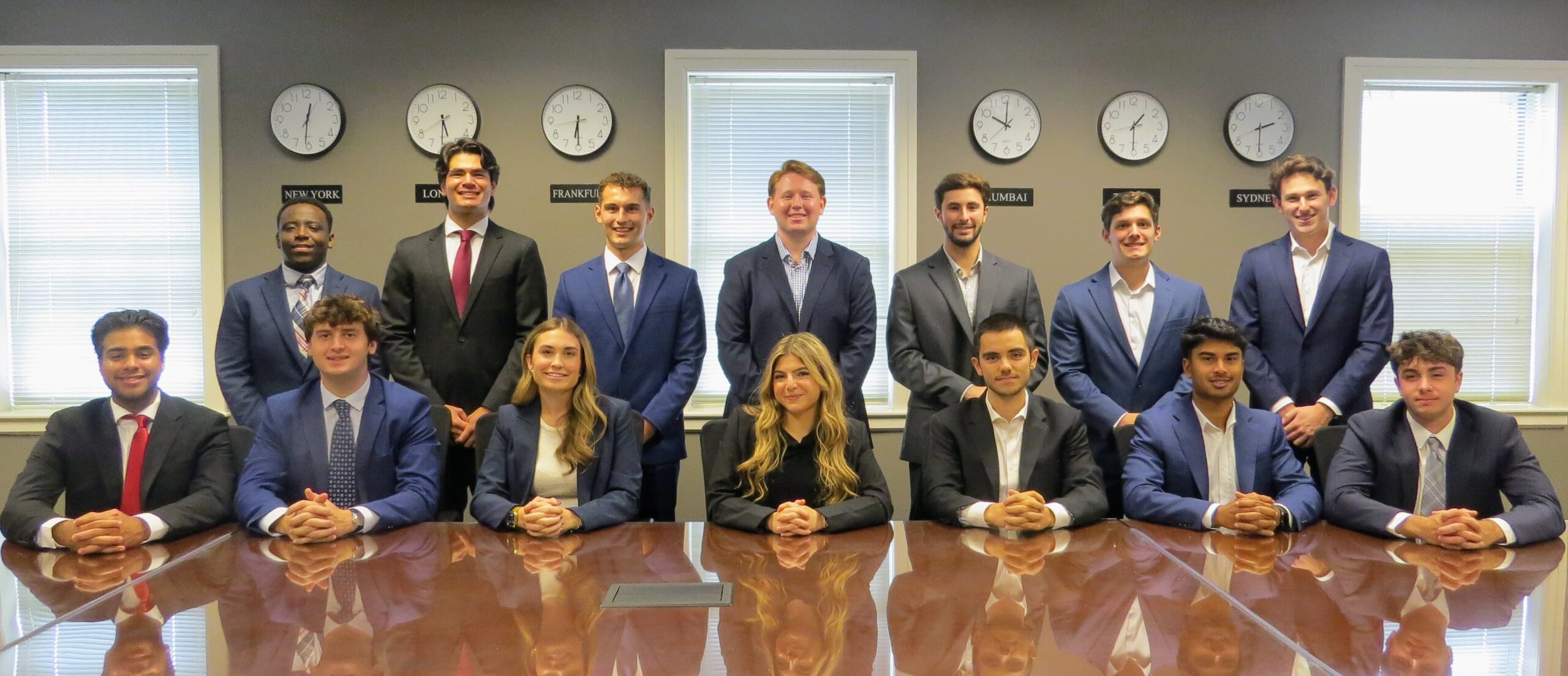Top Row: Methro Isaac; Harrison Maitland-Carter; Vincent Louis Rizzi; Stephen Douglas Harvey Jr; Tyler Joseph Provost; Anthony Jack Brown; Jordan A. Koss
Bottom Row: Nomar Arias Bautista; Luke Thurman Martini; Emily Kathryn Nolan; Kristen Afacan; Dominic J. Manzo; Milin Raj Vora; Kyle James Tierney
LETTER FROM THE FACULTY ADVISOR
The Herbert B. Mayo Student Investment Fund provides undergraduate students an opportunity to develop and increase their knowledge of investments through the hands-on experience of selecting and managing the Fund’s assets. The Fund was initially created by a gift from a faculty member, Dr. Herbert B. Mayo, and contributions from alumni. Since its inception in 2000, well over three hundred undergraduate students have participated in determining the portfolio’s allocation and selecting individual securities to buy and/or sell. This process has improved the participants’ analytical and presentation skills in portfolio decision-making.
The primary goal of the Fund is the growth in the value of the assets, however, the SIF distributes 3 to 4 percent of the value of the Fund as a one-time scholarship/gift to incoming students from Ewing as a give-back to the community. The Fund values the significance of its social impact initiatives. If you want to invest in a finance major’s future, I invite you to contribute to the SIF. To make a contribution, please visit give.tcnj.edu and indicate that your contribution is to be directed to the School of Business Student Investment Fund.
Macro View by the Faculty Advisor: Tariffs, Inflation, and Portfolio Diversification
The equity market in 2025 has undergone a notable shift, with investors expressing growing concerns about uncertainty surrounding U.S. mega-cap technology stocks. This suggests a recalibration of investment strategies, driven by valuation disparities and evolving sector dynamics. Additionally, elevated expectations for the term premium on U.S. Treasuries have increased the appeal of fixed-income assets, particularly as cash rates are expected to decline. However, the market has faced headwinds from tariff policies, as the current administration’s substantial tariff hikes have heightened uncertainty and weighed on economic growth forecasts. Despite these challenges, momentum in the economy from last year helped offset short-term policy risks, maintaining investor confidence in diversified portfolios.
The traditional 60/40 strategy—allocating 60% to equities and 40% to fixed income—has encountered difficulties in fund management due to heightened volatility and changing stock-bond correlations. With tariffs contributing to inflationary pressures and complicating monetary policy decisions, investors have been forced to rethink diversification strategies. As HBM SIF fund managers navigate these complexities, a more dynamic approach to asset allocation is required to balance risk and return effectively. Returning to fundamentals, such as ensuring strong, healthy earnings, remains our focal point.
Seung Hee Choi
SIF Faculty Advisor & Professor of Finance
choi@tcnj.edu
Herbert B. Mayo Student Investment Fund | LinkedIn


